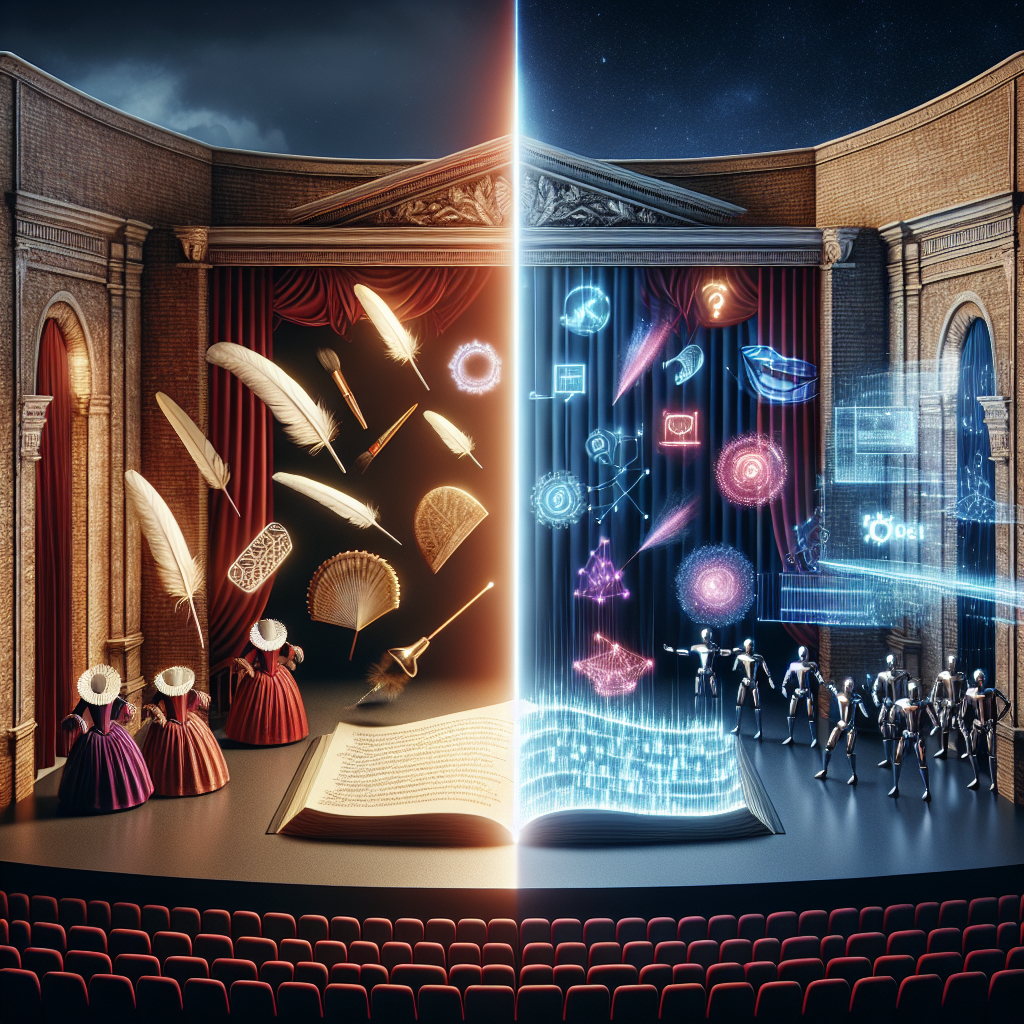The Impact of AI on Theatre: From AI-generated Scripts to Virtual Performances
Artificial Intelligence (AI) has been making waves in various industries, and the world of theatre is no exception. From AI-generated scripts to virtual performances, the impact of AI on theatre is becoming increasingly evident. In this article, we will explore how AI is revolutionizing the theatre industry and what this means for the future of live performances.
AI-Generated Scripts
One of the most significant ways AI is making an impact on theatre is through the generation of scripts. AI algorithms are now capable of analyzing large amounts of data from existing plays, novels, and other literary works to generate new scripts. These AI-generated scripts can be used by playwrights and directors to explore new ideas and concepts, or even as a starting point for developing a new play.
One example of AI-generated scripts in action is the play “Beyond the Fence,” which was created by AI algorithms in collaboration with human writers. The play premiered in London’s West End in 2016 and was the first AI-generated play to be produced in a major theatre. While the play received mixed reviews, it demonstrated the potential for AI to play a role in the creative process of theatre production.
Virtual Performances
Another way AI is impacting theatre is through virtual performances. With the advancement of virtual reality (VR) technology, it is now possible to create immersive theatrical experiences that can be enjoyed from the comfort of one’s own home. Virtual performances can range from recorded plays that are viewed through a VR headset to live performances that are broadcast in real-time.
Virtual performances offer a unique opportunity for theatre companies to reach wider audiences and explore new forms of storytelling. By combining AI-generated scripts with VR technology, theatre companies can create interactive experiences that engage audiences in new and exciting ways. Virtual performances also have the potential to break down barriers to access for those who may not be able to attend live performances in person.
Challenges and Opportunities
While AI has the potential to revolutionize the theatre industry, it also presents challenges and opportunities for creators and performers. One of the main challenges is the fear that AI will replace human creativity and artistry in theatre. While AI algorithms can generate scripts and even perform roles, there is a concern that they may lack the emotional depth and nuance that human actors bring to a performance.
On the other hand, AI also presents opportunities for collaboration and experimentation in theatre. By working with AI algorithms, playwrights and directors can explore new ideas and push the boundaries of traditional storytelling. AI can also help theatre companies reach new audiences and engage with technology in innovative ways.
FAQs
Q: Will AI replace human actors in theatre?
A: While AI has the potential to generate scripts and even perform roles, it is unlikely that AI will completely replace human actors in theatre. Human actors bring a level of emotional depth and nuance to performances that AI algorithms may struggle to replicate.
Q: How can AI benefit the theatre industry?
A: AI can benefit the theatre industry by generating scripts, creating virtual performances, and reaching new audiences. By working with AI algorithms, playwrights and directors can explore new ideas and push the boundaries of traditional storytelling.
Q: What are some examples of AI in theatre?
A: One example of AI in theatre is the play “Beyond the Fence,” which was created by AI algorithms in collaboration with human writers. The play premiered in London’s West End in 2016 and demonstrated the potential for AI to play a role in the creative process of theatre production.
In conclusion, the impact of AI on theatre is becoming increasingly evident, from AI-generated scripts to virtual performances. While AI presents challenges and opportunities for creators and performers, it also has the potential to revolutionize the theatre industry in exciting ways. By embracing AI technology, theatre companies can explore new forms of storytelling and reach wider audiences than ever before.

